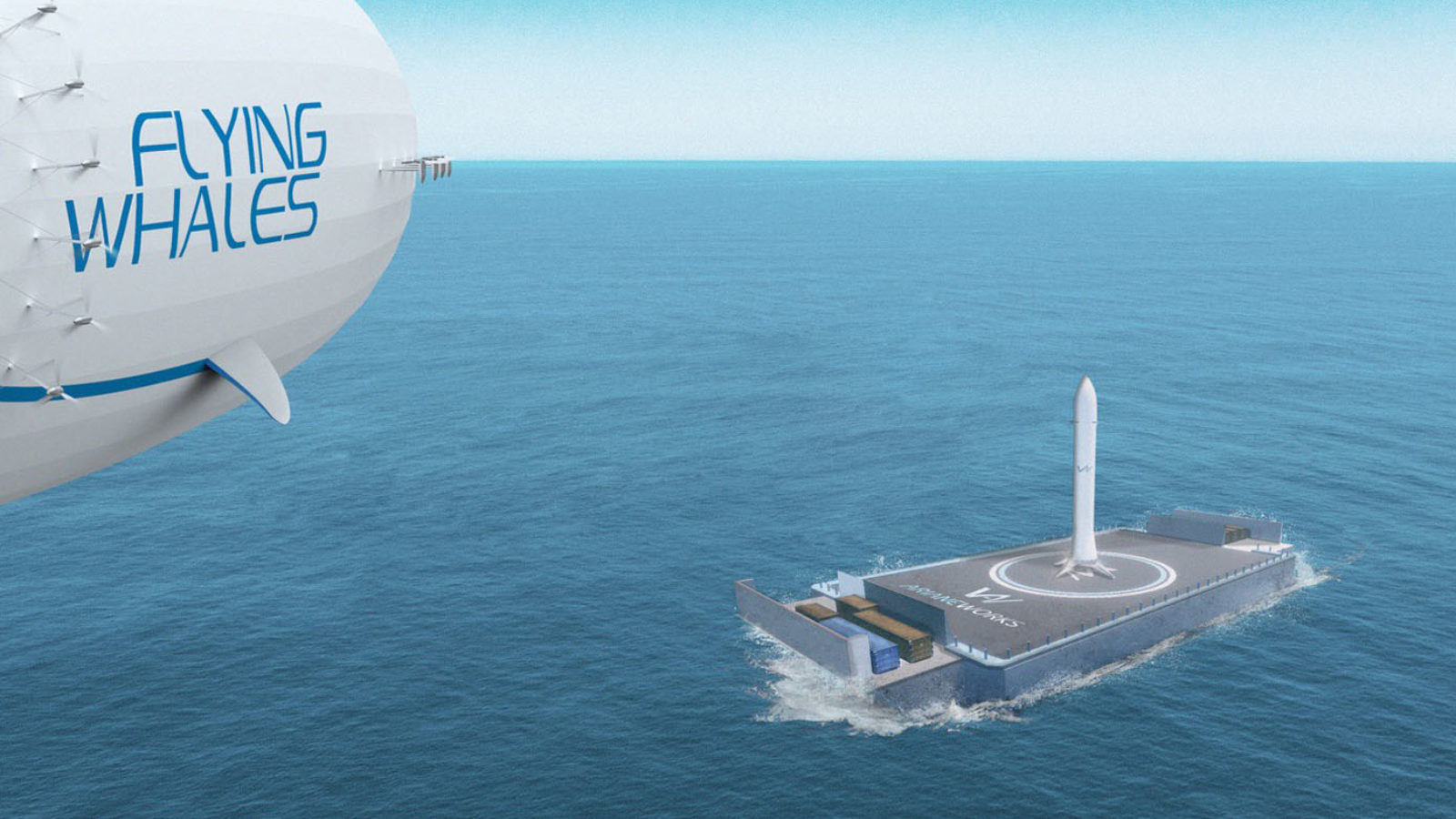
Rotate your tablet
for a better experience


Rotate your tablet
for a better experience

Created in 2012 by Sébastien Bougon, French start-up Flying Whales is developing hoisting and air transport solutions using airships. A solution that could well be of interest to Themis, the reusable, low-cost launcher stage demonstrator being developed by ArianeWorks, the innovation accelerator set up by the French space agency CNES and ArianeGroup. We talk to Habiba Idiri, Flying Whales Commercial and Contracts Manager.
Our future airships will be exceptionally large, up to 200m long and 50m in diameter, and will be able to carry outsized loads in the hold or on slings. They will not need any landing or loading infrastructure. Additionally, the propulsion system — initially hybrid — will ultimately be fully electric.
We are mainly collaborating on a recovery and transport concept for the Themis reusable launcher stage demonstrator.
The idea is that, once positioned in hover-flight mode above the Themis recovery barge located in the sea off the French Guiana Space Center, the airship will deploy its lock-on and hoist system and then return to the launch base, carrying the first reusable stage. The objective is to install a competitive solution that can make significant time-savings between two launches.
Two ArianeWorks partners, ADF/LATESYS and ONERA, are also involved in Flying Whales activities. Being aware of the logistical issues for the Themis demonstrator — the need for flexible solutions based in the local French Guiana economy — they setup the initial contacts.
Flying Whales was partly born out of a conversation between entrepreneur Sébastien Bougon and the French National Forestry Office (ONF). The ONF was looking for solutions to freight wood from French forests in areas of difficult access. To deal with the complex issue of logging and transportation infrastructures in the forest, the ideal system they were looking for had to overcome ground-based transportation constraints, while offering a heavy lift capacity. Our answer to this was the LCA60T, an airship concept capable of being loaded while in hover-flight mode, without ever landing.
We have grown rapidly. We now have 120 employees in the Paris region and Nouvelle Aquitaine further south in France. In a few months’ time, we will begin constructing our first assembly line in Laruscade, near Bordeaux. We will recruit between 200 and 300 people for production management and assembly of what will be the world’s largest airship.
We will soon start assembling our first airship. At ArianeGroup you understand very well the emotions experienced when an ambitious, monumental project is completed. But we will obviously not stop at the inaugural flight of the first LCA60T; we will soon be setting up other production sites outside Europe.